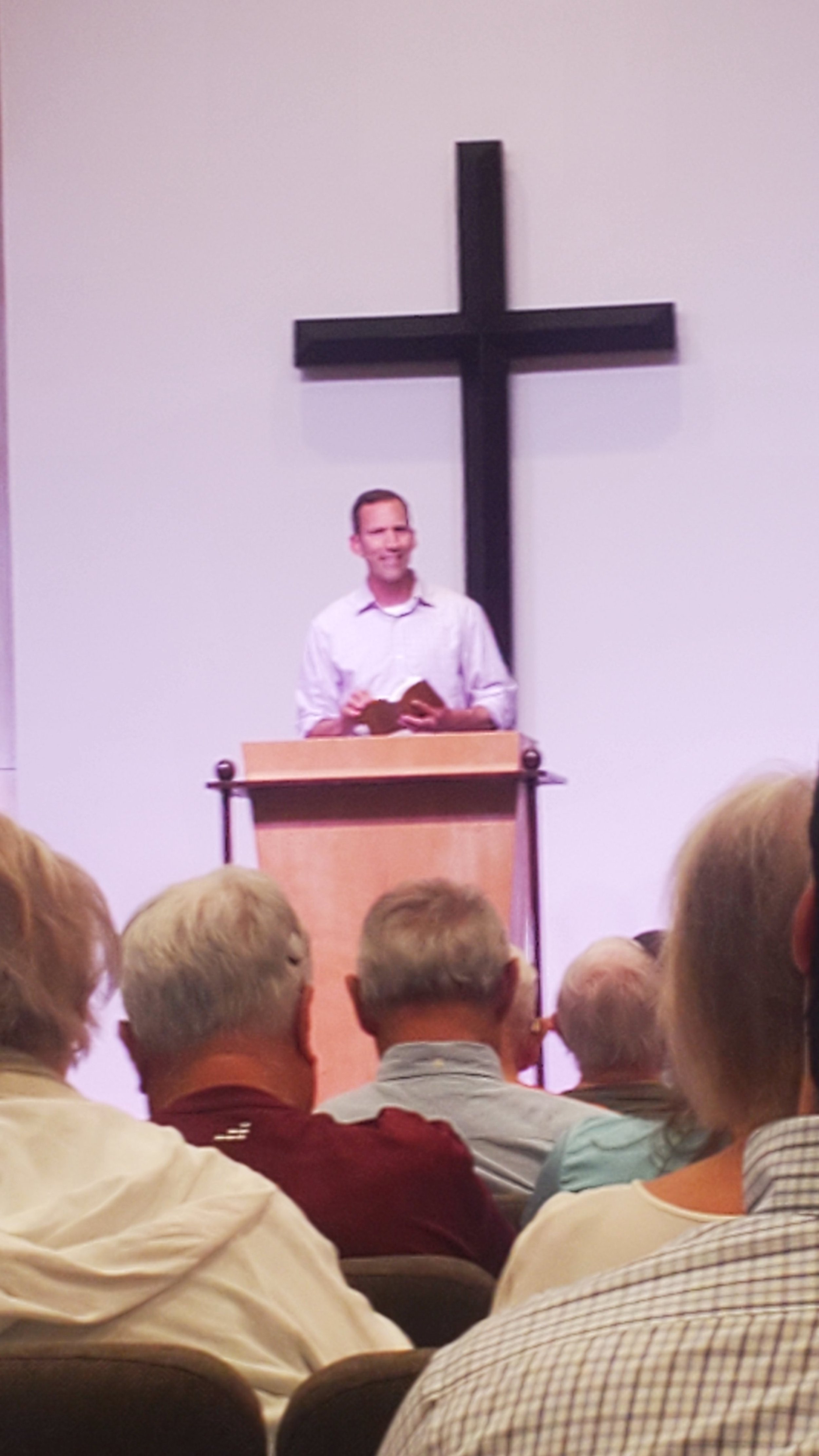Let’s talk manliness. Is it a virtue? Is it a vice? What is it? These are all questions that need answers.
Modern culture has a tendency to corrupt the meaning of a useful concept and then to dispose of it. Manliness is a prime example of this. What used to be heralded generally as an important moral quality has in recent decades been vilified. This has had two consequences: one is that no one is certain now what manliness refers to, and the other is that we all feel as if the-unknown-thing-called-manliness is a source of perverse evil.
It's time to correct our thinking.
Defining Manliness
My goal here is to describe the qualities that used to fit under the term “manliness”. I’m not at this point endorsing manliness or dismissing it. The sole objective is clarity.
Manliness is a kind of assertiveness. David provides the classic instance. There are thousands of soldiers in Israel. They are in each case conspicuously aloof when a certain Philistine giant steps out onto the field. Unexpectedly, David raises his hand and does what no one else is willing to do. As everyone else studies his shoelaces, the boy-shepherd alone looks squarely into Goliath’s eyes. This is manliness.
We see the same trait in Jonathan, David’s great friend. When all of the Israelite soldiers are discouraged and retreating, Jonathan has the brash idea to scale a ridge with his armor-bearer and ambush the Philistines. The deed looks reckless; in fact, it’s quintessentially manly.
Now there are positives and negatives to manliness. On the positive side, manly men get things done; their confidence is contagious; they are willing to sacrifice hedonistic pleasure for higher ends; and they keep their bearing in the midst of emotional hurricanes. Pick any war movie and you will spot these traits in one outstanding lieutenant.
On the negative side, manliness is given to boasting; it is often over-confident; manly men are prone to want to be seen – and to be praised; they can be authoritarian; and the unchecked independence of manliness can torpedo the coordinated efforts of a team. Pick any Western movie and you will see a lot of these defects in at least one maladjusted cowboy.
Now, the critical take away from this is that manliness is neither pure good nor pure evil. Rather, manliness is a potent form of strength - archetypical male strength - and, like any form of power, must be harnessed and directed in order to be a blessing, not a curse.
Once we understand this, it raises a new question: what virtues are needed in order to sanctify manliness for the sake of the noble purposes?
The Virtues that Baptize Manliness
First, in order to avoid the liabilities of manliness, manly men need humility. For ever one laudable specimen of manliness (e.g. David and Jonathan) there are scores of reprehensible case studies. All one has to do is read a classic pre-Christian book like the Iliad and toxic masculinity will be evident on every page. One trait will be glaringly absent from all of the supposed heroes, humility. Each one will have the strength and passion of a hangry grizzly bear, but in most cases such confidence will be the cause of needless destruction and violent competitiveness. Men will boast in their deeds as if they were gods, and they will trample on as many innocent victims as needed in order to make sure that their names will be remembered around future campfires.
It should be obvious that this is not the attitude of a godly man. Christians do not admire the brashness and self-assertion that is epitomised in Satan. On the contrary, we worship the God who humiliated his strength to the point of hanging on the cross so that sinners could be redeemed.
The challenge of manliness, therefore, is to retain the impetus to act in the hour of need while removing the thorn of arrogant self-confidence. How is this done? Manly men need to remember a simple and universal truth: “without me you can do nothing” (Jn. 15:5). Like David, we must be fully aware that what gives us strength on the field of battle is not the muscle of Achilles or the wit of Odysseus. Instead, we profess with David: “This day the Lord will deliver you into my hand.” The strength and confidence of a godly man is not the muscle density of his physique, but the Savior who stands behind him.
Second, to have godly manliness we need meekness. Now, meekness is almost as misunderstood today as is manliness. Most of us think of a meek person as being diffident, tender, timid, and nervous. The image that comes to mind is that of a docile lamb.
Let’s delete all of this and start with a blank slate.
The classic image of meekness is the bearing of a warhorse. Horses are renown for their ability to stay calm and be stout-hearted in the midst of cannon fire. Rather than losing control and fleeing danger, a warhorse is able to restrain passion for the sake of obedience (i.e. the command of the rider).
This ability to check emotion for the sake of duty is the essence of meekness. As more than one person has said, meekness is having a sword but keeping it sheathed.
It is precisely this mode of strength that Jesus summons us to display in the Sermon on the Mount. The idea of turning the cheek is not an act of weakness, but a demonstration of strength. We might say, in fact, that there is a virtuous way in which to resist aggression and a vicious way. To be struck in the face and yield due to fearfulness is not godliness. This is cowardice; God does not call men to be pushovers.
In contrast, godliness is having the strength and passion to act, but choosing not to use such strength for anything destructive and self-centered. Jesus epitomizes such manliness. He goes to the cross not reluctantly as an impotent victim. The opposite is the case: on the cross he demonstrates boundless strength by choosing obedience instead of self-assertion. He perfectly models the Proverb, “Whoever is slow to anger is better than the mighty, and he who rules his spirit than he who takes a city” (16:32).
Anyone who has further questions about meekness should go and listen to Johnny Cash’s song, “The Reverend Mr. Black”.
Finally, manly men need chastity. The pagan archetype of manliness is not just known for his prowess in battle; he’s also known for his sexual conquests. Too many manly men view the scorecard of their strength as the number of men they have humiliated and the number of women they have deflowered. May God judge severely all such evil men who betray the gift of strength for such vile purposes!
Godly men avoid these evils. They are not naïve; they know that the gift of testosterone is like fire, something potentially harnessed for powerful works, something potentially mishandled for ravaging destruction. And understanding this, they run hard after the virtue which orients sexual passion in the direction of holiness. This, of course, is what an older generation labelled “chastity”.
It’s vital for men to know that chastity is more than self-restraint. As important as the handbrake of abstinence is, the man who merely abstains will never be truly pure. God has not given men sexual passion as a cruel form of torture. Rather, such desire is intended to be a renewable fuel that deepens the commitment and sacrifice of love. The chaste man is one who, once married, purifies his passion so that his strengthen can be harnessed for the making and sustaining of a godly marriage and, as God sees fit, a godly family.
Appreciating this is a massive revolution in how we ought to think about manliness. In pagan literature, manly men demonstrate their glory away from home by bearing arms and engaging in conquests. Not so in the Old Testament. In the Bible, manly men exhibit their greatness by getting married, loving wives, and raising children in the doctrines and habits of walking with God. This does not mean that men will not be summoned on occasion to go out and face a giant. The world is still in need of courageous warriors who will face dragons when loved ones are under threat. Yet, on most days, the feats of manliness will look a lot more like washing the dishes to bless a tired wife than thrusting a sword in the face of a Philistine.




